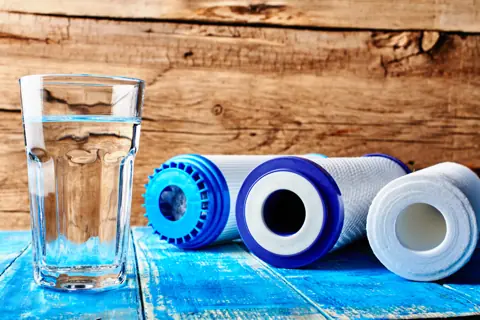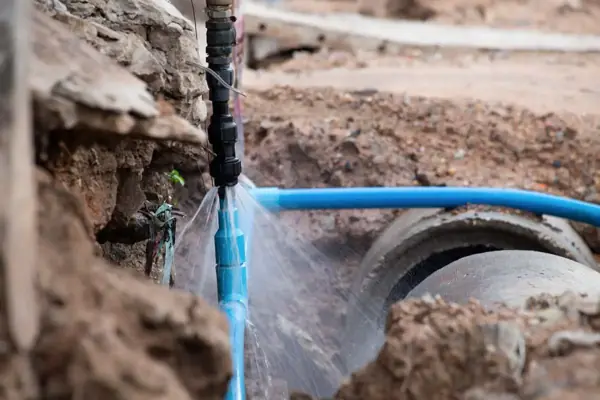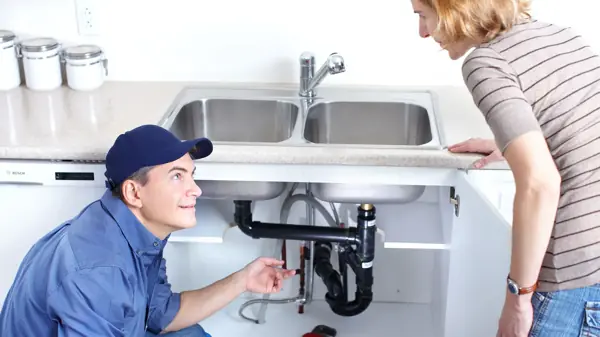Clean water is the cornerstone of a healthy life, yet the path to purity has never been more advanced or accessible. Modern water filtration systems are transforming the way we ensure the quality and safety of our drinking water, blending cutting-edge technology with sleek, user-friendly designs. From removing harmful contaminants to enhancing taste, these systems are not just appliances—they’re investments in well-being.
Whether it’s for your home, office, or on-the-go hydration, understanding these systems empowers you to make informed choices that benefit both you and the planet. Dive into the innovations shaping the way we filter, purify, and consume water, and discover why purity perfected is no longer a luxury—it’s a necessity.
What are the different types of water filters available?
Several types of water filters are available, each designed to address specific water quality concerns. Here are some of the most common types:
- Activated Carbon Filters: These filters use activated charcoal to remove chlorine, volatile organic compounds (VOCs), and bad odors from water. They improve taste and are effective for general water purification but may not remove heavy metals or bacteria.
- Reverse Osmosis Filters: Reverse osmosis (RO) systems use a semipermeable membrane to remove many contaminants, including dissolved solids, heavy metals, bacteria, and viruses. RO filters provide highly purified water but may waste some water during filtration.
- UV (Ultraviolet) Filters: UV filters use ultraviolet light to kill bacteria, viruses, and other microorganisms in the water. These filters effectively disinfect water but do not remove chemicals or particulates. They are often used in conjunction with other filtration methods.
- Distillation Filters: Distillation involves boiling water and then condensing the steam back into liquid, removing impurities like salts, heavy metals, and chemicals. This process can be slow but provides very pure water.
- Ion Exchange Filters: These filters remove hard minerals, such as calcium and magnesium, which cause hard water. They soften water by replacing these minerals with sodium or potassium.
- Mechanical Filters: These filters physically remove particles, sediment, and debris from water. They are often used with other filters to pre-filter larger contaminants before more advanced filtration processes.
Each type of filter has its strengths and is suited to different water quality concerns, so choosing the right one depends on your specific needs.
How often should I change my water filter?
The frequency at which you should change your water filter depends on the type of filter, the manufacturer’s recommendations, and the amount of water you use. Common filters like activated carbon are generally recommended to be replaced every 3 to 6 months to maintain optimal performance.
If you have a high-usage household or live in an area with poor water quality, you may need to replace the filter more frequently. Regularly checking the filter’s condition or noticing a decrease in water flow or taste can signal it’s time for a replacement.
The replacement schedule for more advanced filtration systems, such as reverse osmosis or UV filters, can vary. Reverse osmosis filters may require changing the membrane every 2 to 3 years, while pre-filters and post-filters should be replaced more frequently, typically every 6 to 12 months.
UV bulbs should be replaced every 12 months to ensure they effectively kill harmful microorganisms. Always follow the manufacturer’s guidelines for your specific filter system, and remember that timely replacement ensures your water stays clean and safe.
What are the benefits of using a water filter?
Using a water filter offers a wide range of benefits that improve the quality of the water you consume and the overall health of you and your family. Here are some of the key advantages:
- Improved Water Quality: Filters remove harmful contaminants such as chlorine, heavy metals (like lead and mercury), pesticides, bacteria, and sediments. This results in cleaner, safer water for drinking, cooking, and bathing.
- Better Taste and Odor: Water filters, especially activated carbon filters, significantly improve the taste and smell of tap water by removing chlorine and other chemical compounds that cause unpleasant odors or flavors.
- Health Benefits: By reducing exposure to harmful chemicals and contaminants, water filters can lower the risk of certain health problems, such as gastrointestinal issues, skin irritation, and even long-term diseases associated with heavy metal exposure.
- Cost-Effective: Using a water filter reduces the need for bottled water, saving money in the long run. It also reduces plastic waste, contributing to environmental sustainability.
- Softened Water: Some filters, like ion exchange systems, soften hard water by removing minerals like calcium and magnesium, which can prevent limescale buildup in pipes and appliances, extending their lifespan.
- Convenience: Having a water filter at home provides easy access to clean, filtered water, eliminating the need to purchase bottled water or rely on water delivery services.
Water filters provide purified water, enhancing the taste and safety of drinking water while promoting overall health and wellness. They are also a more sustainable choice.
How does a water filter work?
A water filter uses various materials and processes to remove contaminants from water, improving its taste, quality, and safety. The most common filtration methods include activated carbon, reverse osmosis, and mechanical filtration. Activated carbon filters adsorb chemicals, chlorine, and odors, trapping these impurities in the pores of the carbon material.
In reverse osmosis (RO) systems, water is forced through a semipermeable membrane, which removes a wide range of dissolved solids, heavy metals, and microorganisms. Mechanical filters use fine mesh or screens to physically remove larger particles like sediment, rust, and debris from the water.
Some water filters combine multiple filtration technologies for enhanced purification. For example, a reverse osmosis system may include pre-filters to remove sediment and chlorine before the water passes through the RO membrane, ensuring that the membrane doesn’t get clogged or damaged.
UV (ultraviolet) filters use UV light to kill bacteria, viruses, and other pathogens, providing additional protection. By targeting specific contaminants, water filters ensure that the water you drink, cook with, and use for hygiene is cleaner, healthier, and free from harmful substances.
Achieve Pure Water with Advanced Filtration Systems!
Achieve pure, clean water for your home with advanced filtration systems from Hi-Desert Plumbing! Our state-of-the-art water filtration solutions remove contaminants such as chlorine, heavy metals, and bacteria, ensuring your water is safe, great-tasting, and healthy for drinking, cooking, and bathing.
Whether you’re looking for a simple under-sink filter or a whole-house filtration system, our expert team will help you choose the right solution based on your water quality and needs. Enjoy the peace of mind that comes with purified water every day. Contact us today to get started on improving your home’s water quality!





